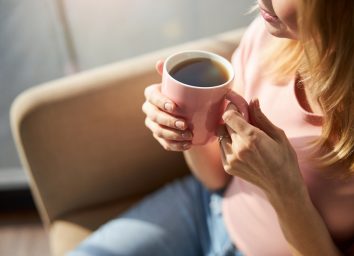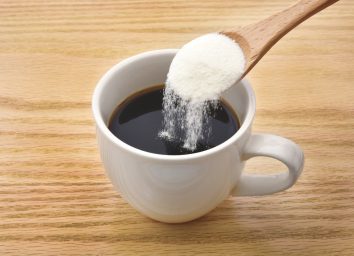Downsides of Drinking Coffee Every Day
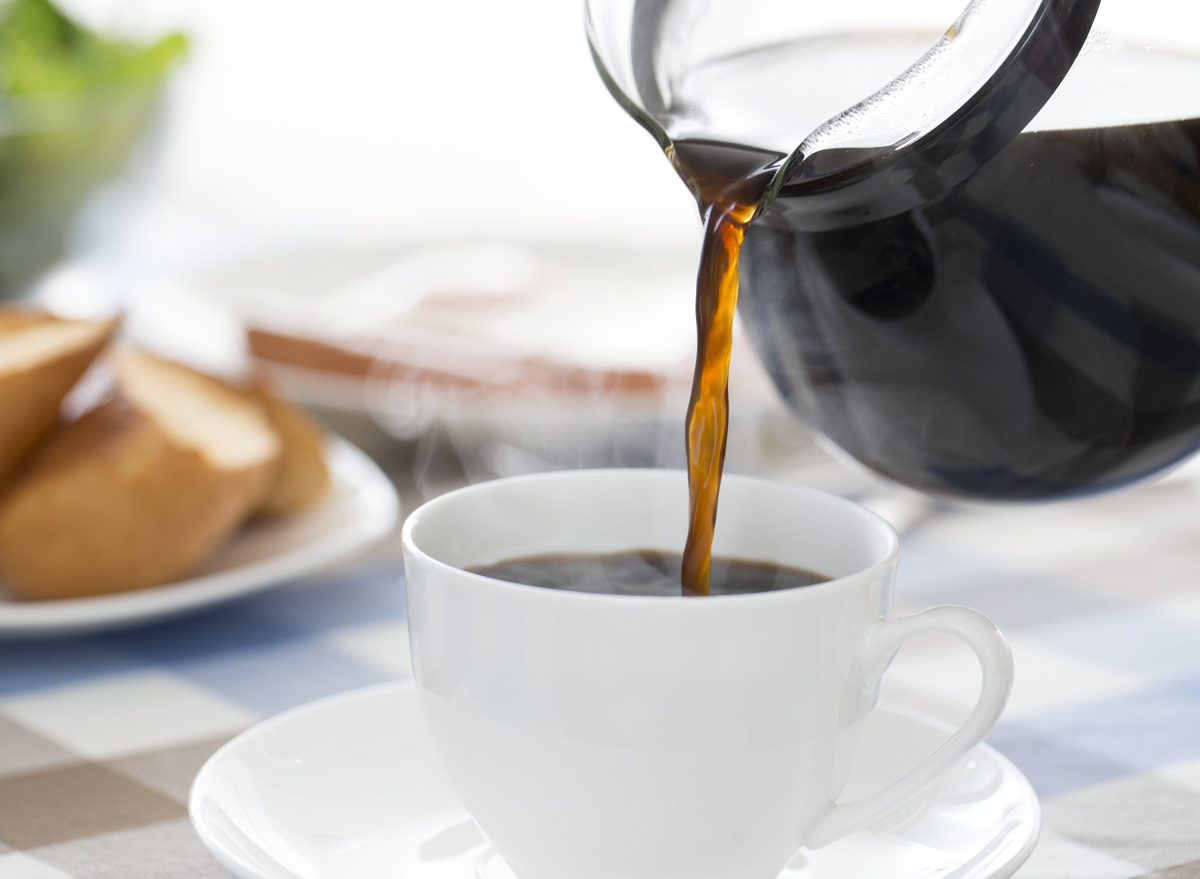
You’ve long given up on trying to convince yourself that your daily dose of coffee is good for you, right? It just is. Well, while there might be some benefits to drinking coffee, there are also some downsides. And, supposed benefits or not, no doctor is going to tell you to start a coffee habit if you don’t already have one (but they will definitely recommend keeping your current habit in check so you don’t go overboard).
The thing is that you don’t even have to go overboard on the caffeinated stuff to experience unhealthy side effects. (See: 5 Side Effects of Drinking Too Much Coffee.)
“For the average healthy person, eight to twelve ounces per day is likely fine,” says registered dietitian nutritionist Barbie Boules, RDN, founder Barbie Boules Longevity Wellness, before adding that, like with everything, you need to pay attention to your body after caffeinating.
Even a small amount o’ joe can make you feel irritable, edgy, and anxious—and that’s not all. Here are 6 downsides of indulging in a cup (or more!) of your favorite brew every day. Read on, and for more on healthy eating, don’t miss 7 Healthiest Foods to Eat Right Now.
It can aggravate hormonal changes.

Many of Boules’ clients are women in their 40s, and she says this is a population that needs to be aware of how their hormones are changing if they’re frequent caffeinators.
“In midlife, when estrogen, progesterone, and testosterone start to become erratic, anxiety, sleep issues, and even heart palpitations are common—even if they were never issues before,” she explains. “Caffeine is a stimulant drug and if you’re sensitive [to it, it] can double down on all these symptoms.”
In other words, if perimenopause or menopause is already making you anxious and sleepless, caffeine is likely to make you feel even worse.
It disrupts your sleep.
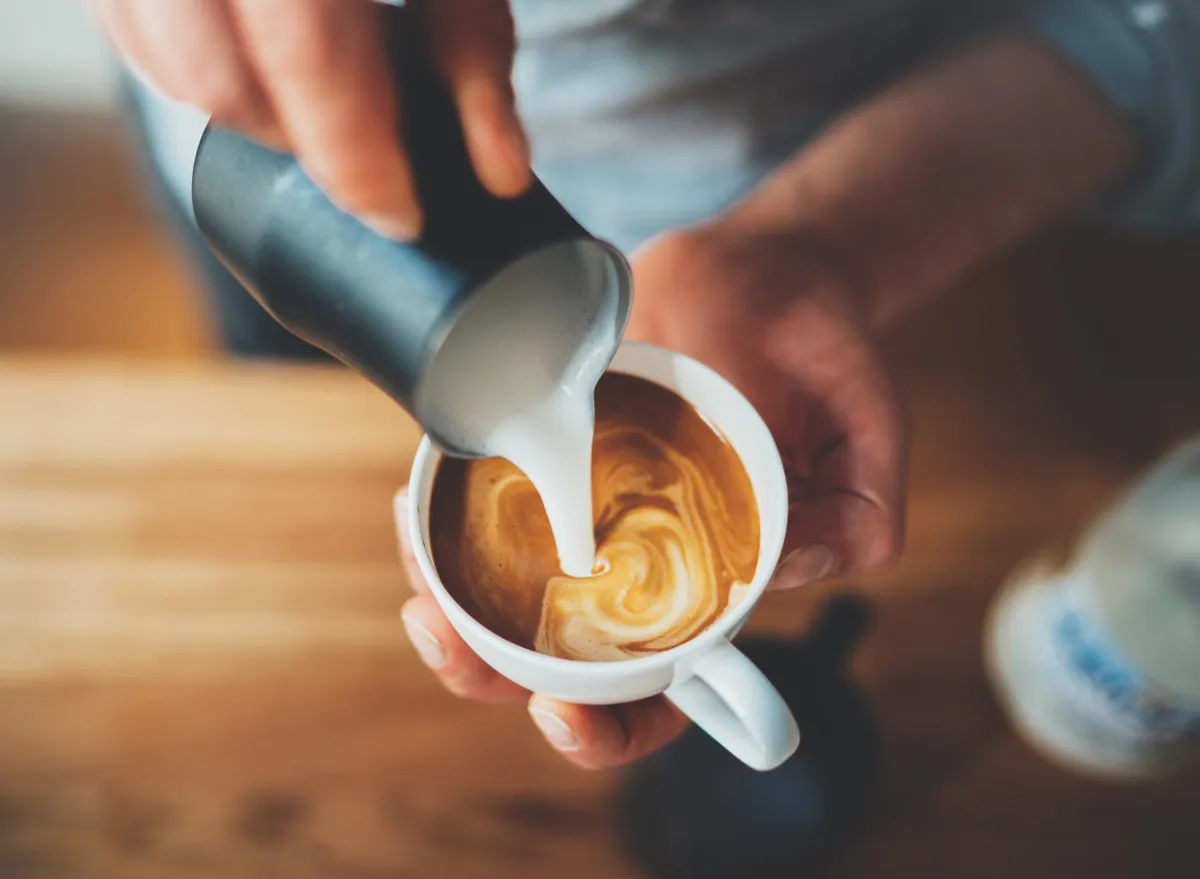
Wondering why your sleep quality is so poor? Too much caffeine commonly causes sleep problems, says Amy Gorin, MS, RDN, a plant-based registered dietitian and owner of Plant-Based Eats in Stamford, CT.
“Whenever you’re drinking coffee or taking in other sources of caffeine, you want to be careful to limit your daily intake to no more than 400 milligrams of caffeine per day,” she recommends, adding that this breaks down to about three to five cups of regular coffee.
Before you assume that cutting off your coffee consumption after dinner will allow you to avoid caffeine-related sleep problems, you should know that one 2013 study in the Journal of Clinical Sleep Medicine discovered that people had sleep disturbances after drinking coffee three hours and six hours before bedtime. That means if you’re drinking coffee past, say, 4 p.m., it could be messing with your nightly zzz’s (depending on your usual bedtime).
It can upset your stomach.
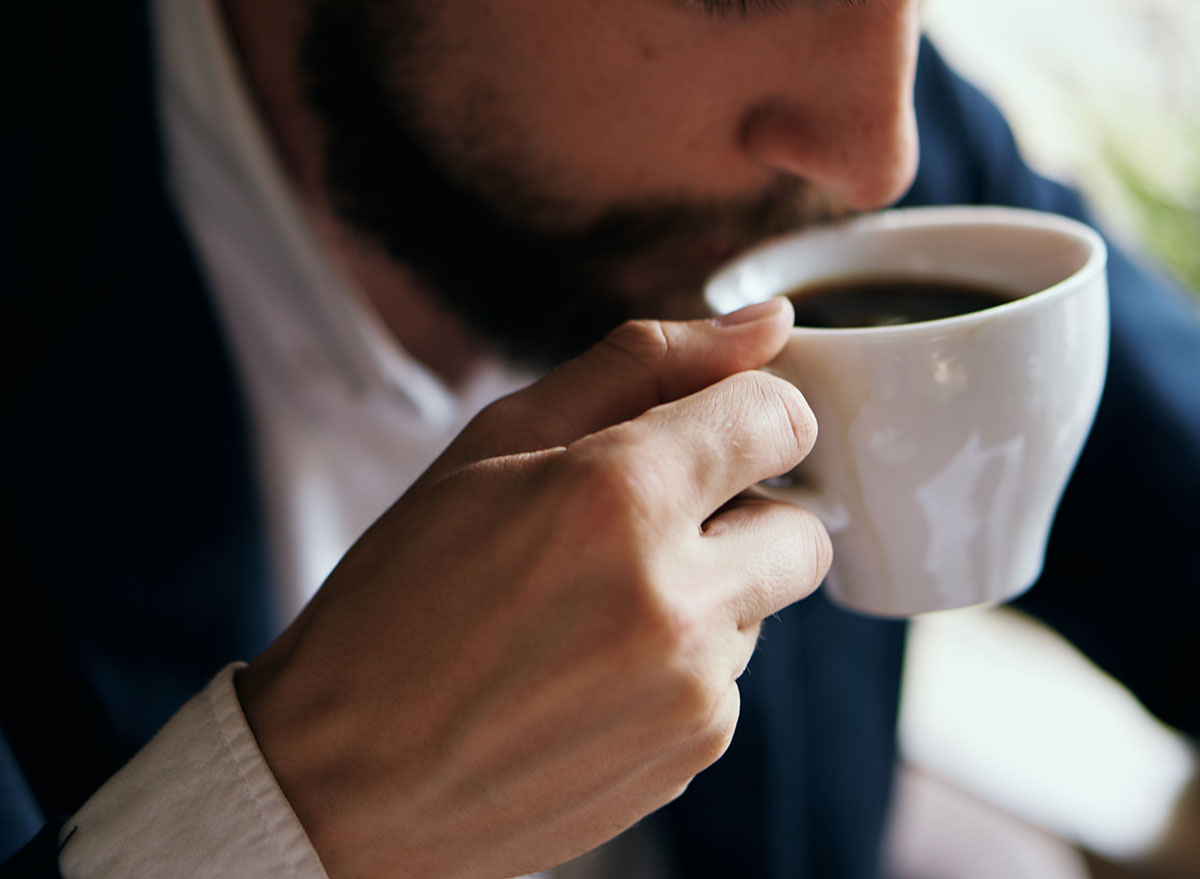
Gorin notes that one benefit to drinking coffee every day is that it’s a digestive aid, moving waste through your intestines more quickly and helping to keep you regular. That’s a good thing, but it also emphasizes caffeine’s potential effects on your digestive system—and too much of it can cause GI problems like diarrhea, loose or watery stools, and even acid reflux.
There isn’t a lot of concrete evidence tying gastroesophageal reflux disease (GERD) to coffee, but cutting back on caffeine or cutting it out completely is a recommendation frequently made by gastroenterologists for the management of GERD. (The assumption here) is that caffeine relaxes the muscles in the esophagus and that allows the contents of your stomach to travel back up the throat, causing acid reflux.
It tempts you to “power through” fatigue.
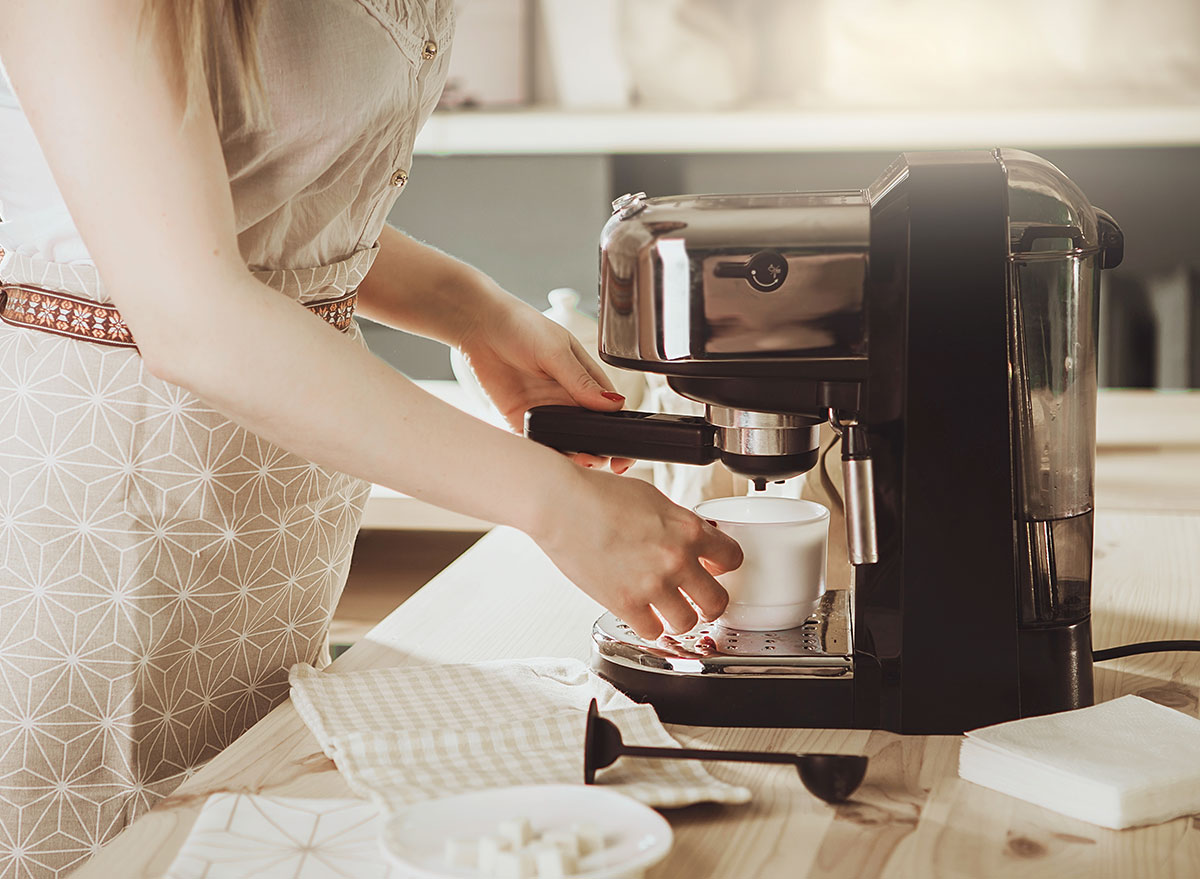
Raise your hand if you’ve hit an afternoon slump and reached for the strongest espresso in the office coffee machine. We get it, but this is actually not good for you in the short-term or the long-term. For one, it sets you up to hit the wall again after the caffeine wears off. It also doesn’t address the root cause of your fatigue—only slaps a temporary fix on it. (The same thing happens with energy drinks: What Happens To Your Body on Energy Drinks, Says Science.)
In this way, says Boules, “powering through” is one of the worst things you can do.
“Focus on getting a good night’s sleep, staying hydrated, moving your body (ideally in fresh air), and choosing meals and snacks that are a balanced mix of fiber-filled carbs, lean proteins, and nourishing fats,” advises Boules.
It’s addicting.
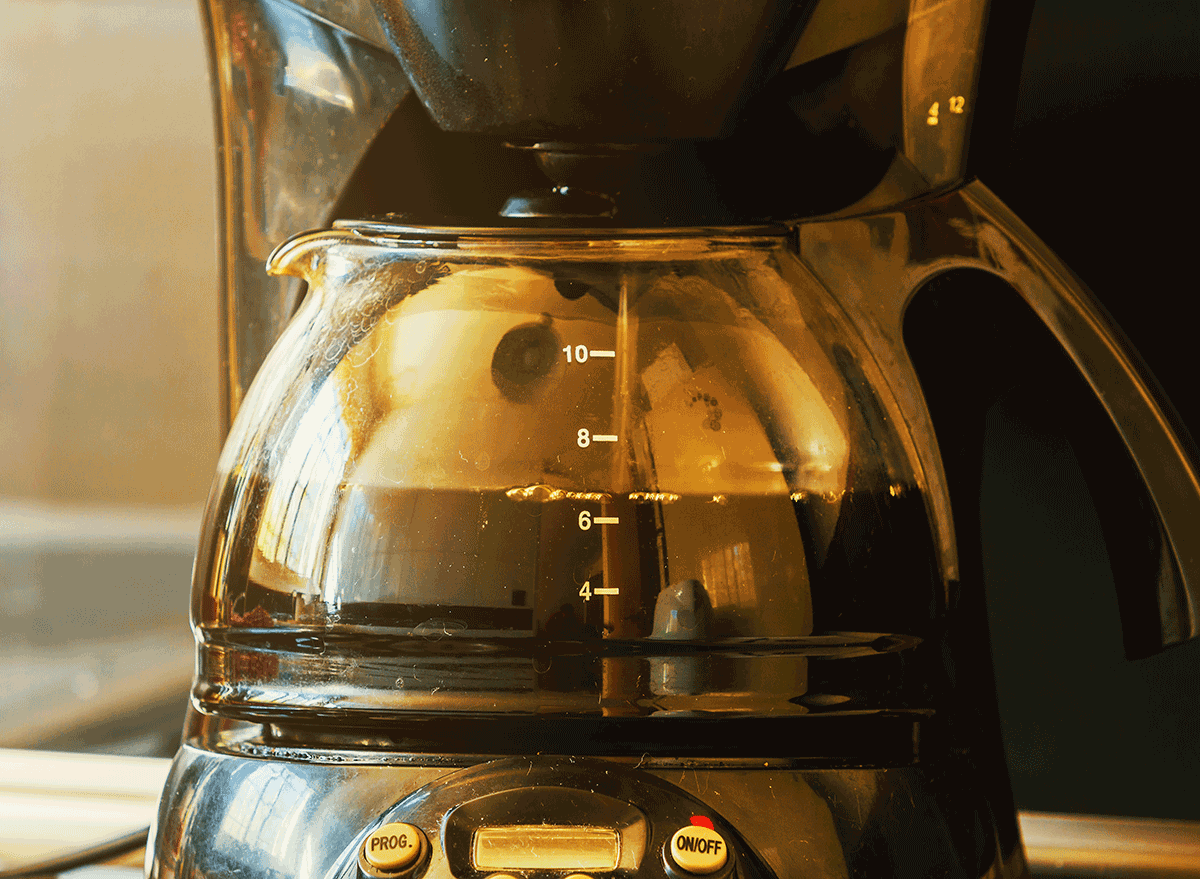
Because of how widely available coffee is—and the fact that there’s no minimum age for drinking it—we all tend to forget that it’s a stimulant with nearly drug-like effects.
That means that drinking it has a direct impact on our bodies…and so does not drinking it. If your body is used to a daily influx of caffeine and you suddenly skip a day, you’re going to feel it in the form of headaches, irritability, and excessive drowsiness.
To be clear, you can’t technically get addicted to coffee, but the withdrawal is still real: a 2012 study in Drug and Alcohol Dependence found that regular coffee drinkers had a higher incidence of flu-like symptoms, including fatigue, nausea, and headaches, after 16 hours of abstinence than people who didn’t drink coffee.
It can mess with your mental health.
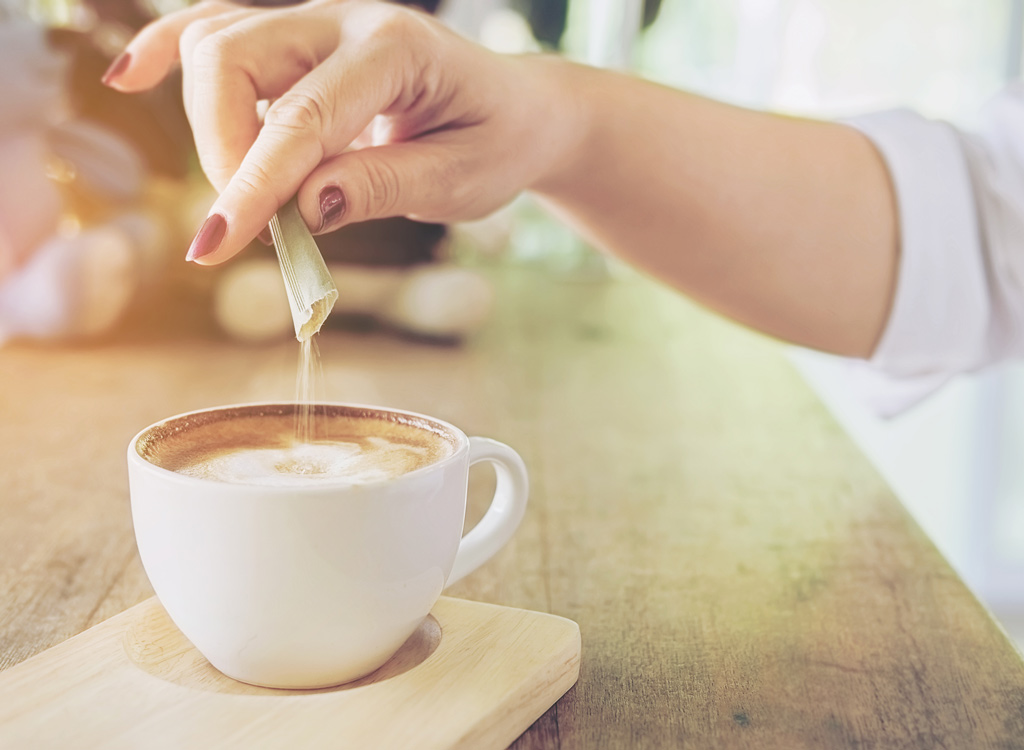
Caffeine gives you a jolt of energy by blocking brain chemicals that can lead to drowsiness, but in doing so, it also sets off an adrenaline response. This isn’t usually a huge problem after one cup of coffee, but if you’re a chronic consumer—drinking much more than the recommended 400 milligrams per day—you might actually experience symptoms similar to that of an anxiety disorder.
What’s more, a 2018 review published in Advances in Psychiatric Treatment suggests that not only can excess caffeine consumption cause anxiety symptoms all on its own, it can also exacerbate existing psychiatric disorders, worsening symptoms in people already suffering from anxiety disorders, sleep disorders, eating disorders, and schizophrenia. So you can count coffee among the 17 Foods That Make Your Depression and Anxiety Worse.
